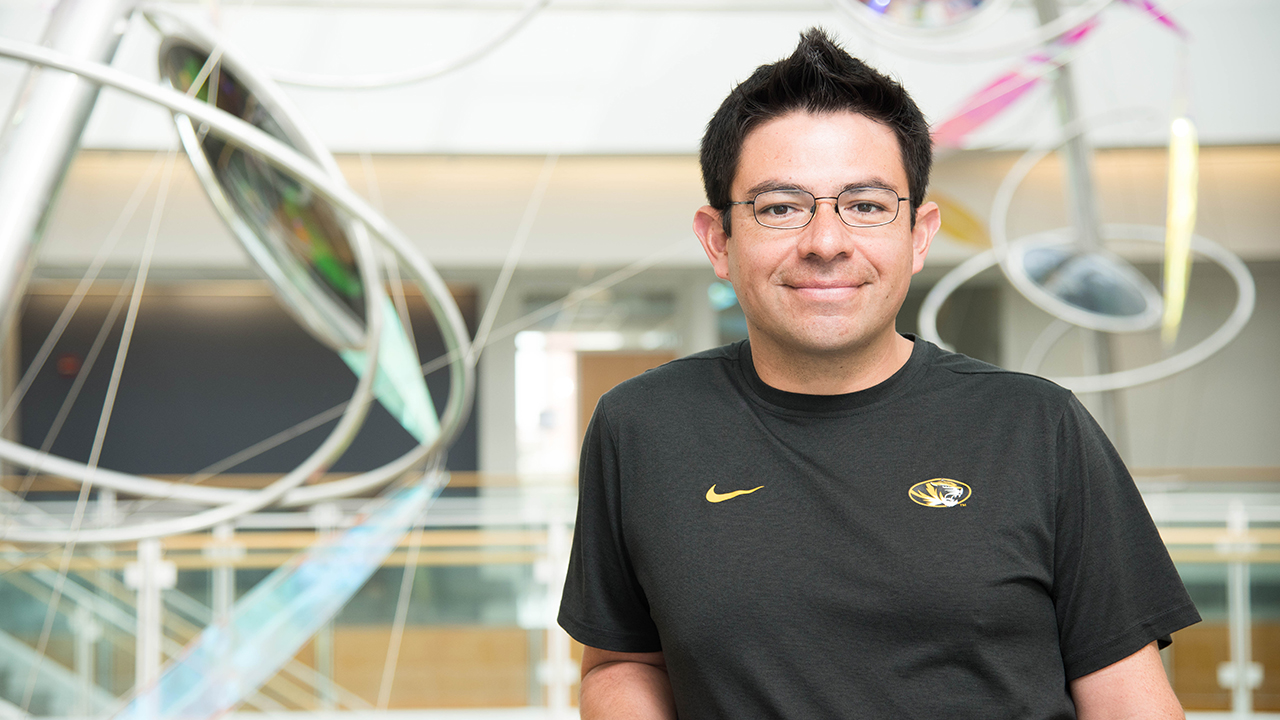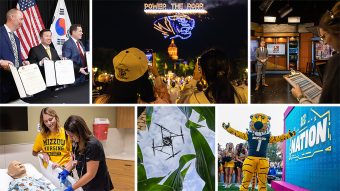
Dec. 7, 2022
David Mendoza, a Bond Life Sciences Center principal investigator and associate professor of plant sciences in the College of Agriculture, Food and Natural Resources, recently received a $200,000 grant for biomedical sciences from the Pew Charitable Trusts.
“To have people, you need plants. So if we manage to engineer better and more nutritious plants, the chances of improving human health are high,” Mendoza said.
Mendoza was one of six pairs of scientists awarded grants for collaboration. He will team up with Clarissa Nobile, an associate professor at the University of California Merced, to look at plant-microbe interactions within the context of iron intake.
Most of Mendoza’s work involves growing plants in the lab, looking at how plants manage essential nutrients including heavy metals like iron. With this grant, he plans to take the next step to grow plants in a less sterile environment and explore the role of the microbiome on nutrient acquisition.
Bacteria and other microscopic organisms surrounding plants are known as the microbiome. These microorganisms don’t just sit passively around the plant, they interact and affect plant’s health and behavior.
“That communication between plants and microorganisms led to the discovery of growth-promoting bacteria, which could be used as biofertilizers,” Mendoza said. “We want to find which bacteria really helps the plant to fight against pathogens, then instead of spraying them with fertilizers, maybe we can just spike them with the right combination of bacterial communities.”
Mendoza’s expertise lies in plant nutrition, and Nobile brings the microbiology expertise. Nobile will send collections of bacteria known as synthetic communities, or SynComs, for the Mendoza lab to use on plants to study how they affect plant nutrition.
“Pew people are eager collaborators, so Clarissa replied immediately, and said, ‘yes, absolutely,’ and we got into a Zoom call,” Mendoza said. “We wrote the grant together, and we submitted together.”
The grant allows for flexibility during the research process. If Mendoza and Nobile start their research on one path and discover another path they want to pursue, they are allowed to change their plans.
Getting to the next stage of Mendoza’s project would mean learning more about how SynComs can improve plant nutrition.
“It was not about cancer, it was not about a disease, it’s about plant nutrition for human nutrition,” Mendoza said.



